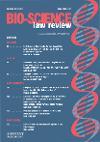Bio-Science Law Review - Volume 18 - Issue 3

EDITORIAL
IN DEFENCE OF DIVISIONALS: DO THE COMPETITION AUTHORITIES HAVE A USEFUL ROLE IN POLICING OF THE PATENT SYSTEM?
GORDON D. HARRIS
Gowling WLG (UK) LLP, London
ADVANCED THERAPIES: INNOVATION, REGULATION AND PATENTABILITY IN THE UK
TAMSIN CORNWELL, SARAH TAYLOR, EMILY WILLIAMS AND KIAH YORK
Pinsent Masons, London
Advanced therapy medicinal products (ATMPs) are revolutionary medicines for human use based on genes, tissues or cells. Manufacturers face considerable challenges in bringing them to market, including access to infrastructure, patentability, and pricing and reimbursement. From a UK perspective, the authors consider how these issues may be navigated.
FIBROGEN V AKEBIA: A CLASH OF PRINCIPLES BETWEEN JUDGES IN THE COURT OF APPEAL
DR BRIAN WHITEHEAD
Haseltine Lake Kempner LLP, Leeds
The Court of Appeal led by Birss LJ has overruled the approach of Arnold LJ in the Patents Court to the construction of patent claims that are limited by functional features, and has applied a more lenient and patentee-friendly construction to such claims. The case reveals a substantial divergence of approach on this issue between two Court of Appeal patent specialists and a definitive ruling is likely to be required in the future.
FREEPORT TAX SITES: A HELPFUL TOOL TO ACHIEVE GROWTH ACROSS THE UK'S LIFE SCIENCES SECTOR
PENNY SIMMONS
Pinsent Masons, London
Freeports and their associated tax benefits may offer significant opportunities to life sciences businesses that already benefit from existing R&D tax credits. This is consistent with the UK Government’s current strategic objectives for the sector
A DEFENCE TO PATENT INFRINGEMENT BY THE DOCTRINE OF EQUIVALENTS: THE FUTURE OF THE FORMSTEIN APPROACH IN UK LAW
MARK MARFÉ, SARAH TAYLOR, ALICE PRINGLE AND BETH PENDOCK
Pinsent Masons, London
The growing reliance on the doctrine of equivalents in UK patent disputes has led to questions as to whether any defences to infringement by equivalence are available and whether the doctrine applies to validity. While these issues have not yet been fully tested by the courts, judges are increasingly offering their views on them
POLITICAL MOMENTUM IS BEHIND THE UPC: BUT WHAT ABOUT INTERNATIONAL LAW?
PAUL ENGLAND
Taylor Wessing, London
Following the withdrawal of UK ratification of the UPC Agreement it has been unclear how the Protocol on the Provisional Application of the UPC Agreement or the Agreement itself could come into force under the international law of treaties, without amendment and re-ratification. This may be dealt with by using a declaration of ‘authentic interpretation’ that removes the need for UK ratification
Book Review
A USER'S GUIDE TO INTELLECTUAL PROPERTY IN THE LIFE SCIENCES
Paul England and Simon Cohen
